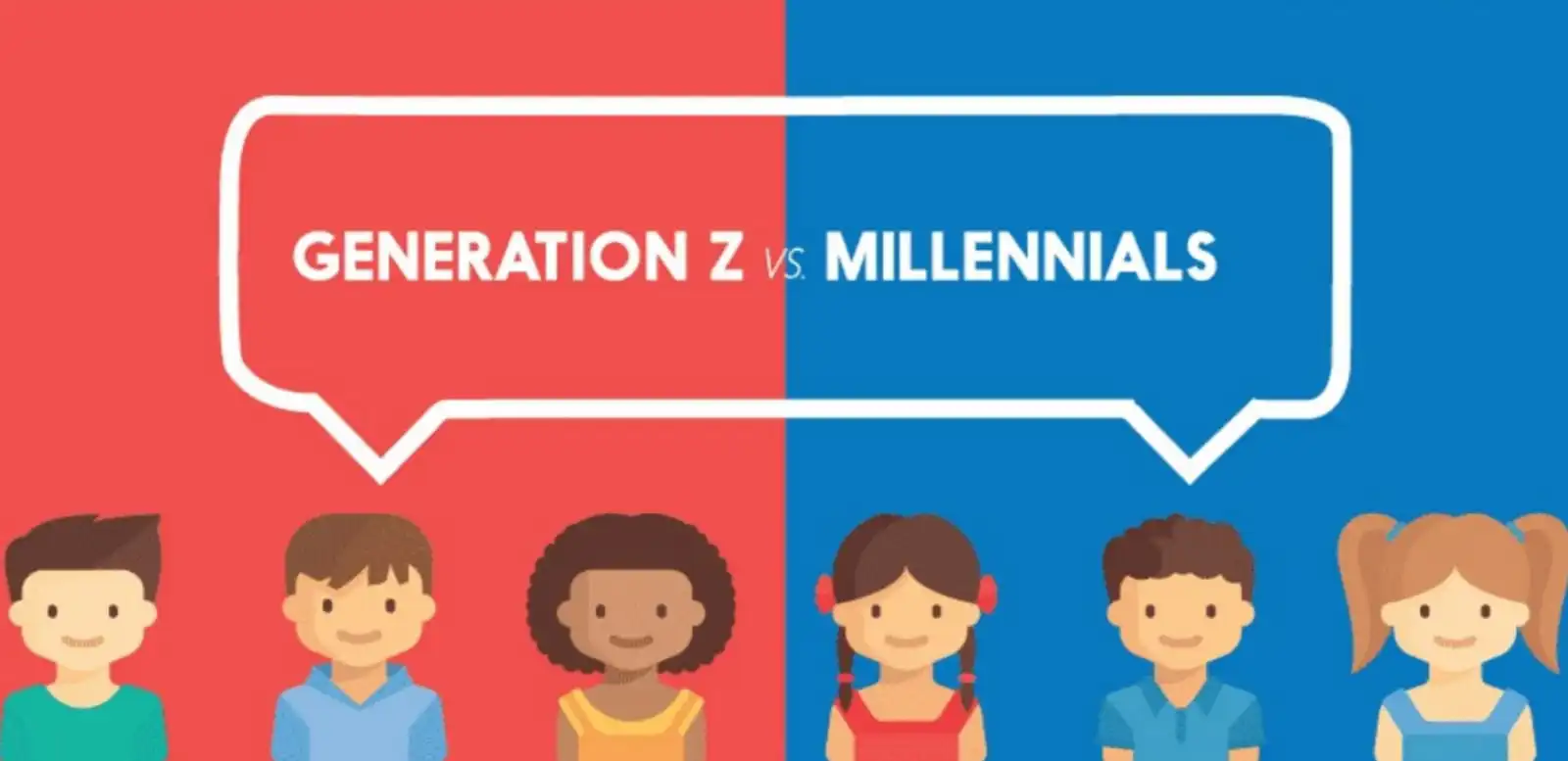What does it mean to be a millennial or a member of the Gen Z generation?
Millennials: People born between 1981 and 1996 are known as “Millennials.” The oldest millennials are in their late twenties, while the youngest are still in their early twenties. Millennials are most recognized for being the first generation to grow up with access to the internet and mobile devices. Millennials have begun to become more interested in racial and gender equality than their predecessors.
Gen Z: People born between 1997 and 2015 are known as “Gen Z.” Gen Z is the most diverse and tech-savvy generation to date, having been raised with access to both cell phones and the internet.
Gen Z will differ from Millennials in the workplace in the following ways:
- Gen Z are pragmatic, Millennials are idealistic
At a time when the economy was booming, Millennials were raised by upbeat Baby Boomers. Generation Z, on the other hand, grew up during the Great Recession and is thus more realistic about their circumstances. To have a rewarding and fulfilling professional life, 77% of Gen Z feel they will have to work more than prior generations. The future has become significantly more unpredictable as a result of COVID-19, and many Gen Zers are now in survival mode.
- Security drives Gen Z
While millennials are frequently viewed as idealistic and driven by a sense of purpose rather than a salary, Gen Z may be more concerned with security and money. This is a realistic age; they care about making a difference, but their main motivation is to have a stable life outside of work. Companies wanting to hire Gene Z members should be able to entice them with promises of employment stability and advancement opportunities down the road.
- Gen z may be more competitive than millennials
The millennial generation is said to be collaborative and team-oriented. They want to work in an atmosphere that prioritizes inclusivity and encourages everyone to work together to achieve common goals. The competitiveness of Gen Z, on the other hand, is thought to characterize the generation. They want to operate alone and be rated on their merits, not the qualities of their team.
To stay relevant, Gen Z also appreciates the importance of continuous skill improvement. Their parents most likely instilled in them the value of hard work and the fact that success does not come easily. This generation is willing to put in the effort, but they also expect to be compensated for it.
- Millennials desire to work in different roles, whereas Gen Z wants to work in different career paths.
Millennials have earned the moniker of the “job-hopping” generation because they tend to seek opportunities and move ahead to challenging roles. 61 percent of Gen Z, on the other hand, stated that if a company shared its beliefs, it would stay for more than ten years.
Another significant distinction between Gen Z and Millennials is that Gen Z is willing to take on many responsibilities within a company. On social media, Gen Zers keep a close eye on their peers and want to make sure they stay as proficient as possible. Working on marketing initiatives for two days a week and product development for the remaining three days might make sense for a Gen Zer.
Managers could take advantage of this multitasking generation by encouraging Gen Z employees to try out new job functions. This will aid in the development of more competent staff, as well as the prevention of career stagnation and the reduction of voluntary turnover.
- Gen Z Wants Independence
Gen Zers’ competitiveness is linked to their independence, although they prefer to work alone and take on independent tasks. Many of them would rather have their own office space than operate in an open, collaborative environment. Many people also wish to handle their initiatives so that their abilities and skills may be showcased. They do not wish to rely on others to do their tasks.
This independence may be seen in certain Gen Zers’ higher education decisions. They are more likely than their millennial counterparts to forego further education and enter the workforce right away. They’d rather avoid years of debt by experimenting with one of the newer, more economical alternatives.
Conclusion
As a result, Gen Z is thought to have a shorter attention span, be better at multitasking, be more willing to take entrepreneurial risks, and be a better team player than prior generations. Millennials are more likely to go to college, value quantity above quality in relationships, and save money than previous generations. Organizations that understand generational differences will have an easier time recruiting and retaining the next generation of talent (millennials or Gen Z). It’s more important than ever to understand and engage the younger generations, especially with voluntary employee turnover at an all-time high.
Leaders must realize that it is not questionable to compare the generations, rate them as better or worse, and indicate them as right or wrong. Instead, they should value the differences between generations and try to bridge the generational divide to benefit from a diverse workforce.
References:
- https://www.peoplegoal.com/blog/gen-z-vs-millennials
- https://www.forbes.com/sites/deeppatel/2017/09/21/8-ways-generation-z-will-differ-from-millennials-in-the-workplace/?sh=431b12d576e5
- http://www.differencebetween.net/editor-pick/difference-between-gen-z-and-millennials/
- https://www.businessinsider.in/policy/economy/news/gen-z-and-millennials-actually-want-the-same-things-at-work-but-gen-z-has-the-upper-hand-/articleshow/87554087.cms#:~:text=Millennials%20and%20Gen%20Z%20want,more%20change%20with%20more%20boldness.





